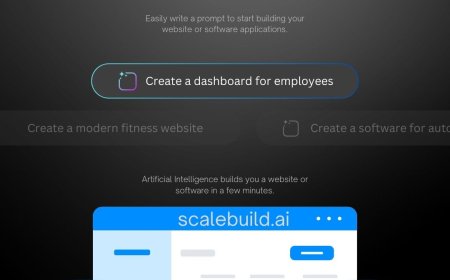Not Just for Payroll: The Hidden Use Cases of BPO Time Tracking Software
Explore surprising and lesser-known benefits of BPO time tracking software beyond payroll. Discover how it boosts productivity, compliance, project planning, and client satisfaction.

In the world of Business Process Outsourcing (BPO), time tracking software has long been associated with calculating hours and processing payroll. But thats just scratching the surface. While accurate payroll is certainly essential, its not the onlyor even the most strategicuse of such tools.
BPO time tracking software has evolved far beyond its traditional role. It has quietly become a powerful tool that improves how businesses manage resources, monitor productivity, meet compliance demands, and deliver value to clients.
Lets explore the hidden use cases of BPO time tracking software and how forward-thinking organizations are using it to stay ahead of the curve.
1. Enhancing Team Productivity with Micro-Level Insights
One of the most underutilized features of BPO time tracking software is its ability to offer a microscopic view of how employees spend their work hours. These insights reveal:
-
Task-specific time consumption
-
Time lost in context switching
-
Underutilized or overworked team members
By reviewing daily time logs and productivity dashboards, managers can identify which tasks drain the most time or which teams are struggling with overload. This leads to smarter workload distribution and improved team performance.
Example:
A customer support BPO discovered that Tier-1 agents were spending too much time on routine password resets. With this insight, they automated that processfreeing up agents for higher-value queries.
2. Improving Client Billing Accuracy and Transparency
For BPOs that bill clients based on hourly work or deliverables, tracking time is about more than just internal controlits about trust.
BPO time tracking software allows companies to provide itemized billing reports that show:
-
Time spent per client or project
-
Breakdowns by task or resource
-
Supporting logs and time stamps
This transparency builds credibility and justifies every dollar billed. Clients feel more confident when they see exactly where their money is going.
Bonus Benefit:
Automated invoicing based on timesheets reduces billing errors and saves finance teams countless hours every month.
3. Strengthening Compliance and Audit Readiness
Many industries, including healthcare, finance, and legal outsourcing, have strict compliance requirements. Missing records or inaccurate logs can lead to penalties or failed audits.
Time tracking software acts as a compliance shield by:
-
Automatically recording work hours
-
Logging attendance with timestamps and locations
-
Creating tamper-proof audit trails
In highly regulated sectors, this kind of documentation isnt optionalits mandatory. BPO time tracking software ensures you're always audit-ready, without relying on manual records or memory.
4. Supporting Performance Reviews and Skill Development
Traditional performance reviews can be vague or subjective. But when managers have access to detailed time tracking data, they can back up their evaluations with hard facts.
Use cases include:
-
Reviewing how long an agent takes to resolve tickets
-
Comparing output against time spent
-
Spotting patterns of improvement or decline
Additionally, if certain employees consistently spend longer on particular tasks, that may signal the need for skill development or trainingsomething that might go unnoticed without the time logs.
5. Optimizing Project Management and Resource Allocation
When managing multiple clients or ongoing projects, efficiency depends on allocating the right number of resources to each task.
BPO time tracking software enables:
-
Real-time visibility into whos working on what
-
Estimations of time needed for future projects
-
Detection of bottlenecks or idle resources
Instead of relying on guesswork, project managers can use real data to make informed staffing decisions and adjust timelines.
Case in Point:
A BPO handling data entry for e-commerce retailers used tracking data to realize that weekend work was 20% less efficient than weekday work. They restructured shifts accordingly and improved throughput without increasing headcount.
6. Tracking Remote and Hybrid Team Efficiency
Post-pandemic, remote and hybrid work models are here to stay. However, managing remote teams brings unique challengesespecially in a BPO setup where accountability is key.
Modern BPO time tracking software comes with:
-
GPS or IP-based location tracking
-
App and website monitoring
-
Screenshots and activity logs
These tools offer reassurance to clients and managers without micromanaging employees. It also ensures that remote work remains productive and transparent.
7. Preventing Burnout and Encouraging Work-Life Balance
Too often, employee wellness is measured only after burnout occurs. But time tracking software can serve as a proactive wellness tool.
It can highlight:
-
Employees consistently working overtime
-
Teams not taking sufficient breaks
-
Imbalanced shift schedules
With this data, HR teams can make timely adjustmentsredistributing work or encouraging time off. In a sector known for high attrition, such steps can make a measurable difference in employee satisfaction.
8. Streamlining Shift Planning and Attendance Management
In 24/7 BPO operations, managing shifts across time zones is a logistical puzzle. BPO time tracking software simplifies this with:
-
Automated shift assignment
-
Real-time attendance logs
-
Alerts for missed check-ins or late logins
The system ensures coverage is always balanced, reduces manual planning effort, and helps managers act fast when someone misses a shift.
Added Bonus:
This data can also be used to spot absenteeism trends or improve punctuality over time.
9. Driving Strategic Business Decisions
The data collected by time tracking tools is not just for operationsit feeds into strategic decisions. Leadership teams can analyze reports to determine:
-
Which services are most profitable per hour
-
Where resource wastage is occurring
-
How to price new client contracts effectively
By aligning productivity metrics with financial outcomes, companies can continuously refine their service models and optimize margins.
10. Elevating Employee Accountability Without Micromanaging
One common misconception is that time tracking tools are intrusive. In reality, when used right, they empower employees.
With clear expectations and performance visibility:
-
Employees become more conscious of how they spend time
-
Managers avoid constant check-ins or interruptions
-
Teams build a culture of self-discipline and accountability
The shift isnt toward surveillanceits toward self-management.
Conclusion: A Strategic Asset in Disguise
BPO time tracking software may enter the picture as a payroll tool, but thats just its surface value. The real power lies in the hidden use casesenhancing productivity, optimizing operations, improving compliance, and building trust with clients.
Organizations that recognize this broader potential stand to gain a competitive edge in a fast-evolving outsourcing market.
If you're only using time tracking to process salaries, youre underutilizing one of the most strategic tools in your arsenal.
Want to Unlock the Full Potential of Your BPO Operations?
Explore a BPO time tracking software solution that does more than count hoursdiscover insights, streamline processes, and scale with confidence.
































